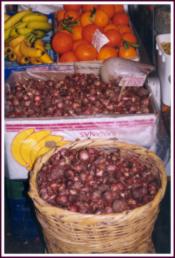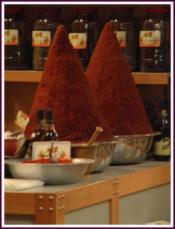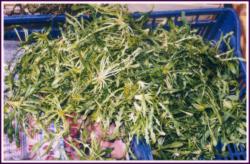Wild plants have always been significant in every culture of the Mediterranean region, being used for food, medicines, fuel and many other purposes, as shown for example in the beautiful illustration reproduced at the main page, taken from Dioscurides De Materia Medica, first published in the first century AD. Today many plants face extinction or severe genetic loss, but detailed information is often lacking. For most of the endangered plant species no conservation measures have been taken. Additionally, the knowledge on the use of plant genetic resources by traditional societies is now threatened with extinction.
It is imperative that as much accurate information as possible is collected and disseminated concerning both the plants themselves and the use-related knowledge pertaining to them, both traditional and modern. The collection of this information is an essential prerequisite for the development of programmes for increasing the utilisation of these plants in a sustainable manner. It is to facilitate the achievement of this task that the MEDUSA network was conceived, and the MEDUSA database is being developed.
|
 |
| Bulbs (Muscari comosum) imported from Turkey,
on sale in the market in Chania, Crete, for use as pickles. Photo: M. Skoula |

